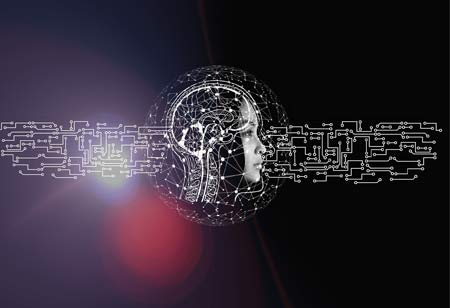THANK YOU FOR SUBSCRIBING
Be first to read the latest tech news, Industry Leader's Insights, and CIO interviews of medium and large enterprises exclusively from Education Technology Insights
Unlocking the Power of Virtual Reality in Workforce Training and Emotional Intelligence Development
The applications of virtual reality, or VR, are becoming more wide and spilling beyond just entertainment and games.

By
Education Technology Insights | Tuesday, May 30, 2023
Stay ahead of the industry with exclusive feature stories on the top companies, expert insights and the latest news delivered straight to your inbox. Subscribe today.
VR improves employee soft skills, which can be modified to choose the ones required to excel in their profession. Emotional intelligence is one of the most important things today.
FREMONT, CA: The applications of virtual reality, or VR, are becoming more wide and spilling beyond just entertainment and games. A report by PwC forecasted that VR technology will be used in 23.5 million jobs worldwide to train recruits, conduct work meetings, and offer improved customer service. Numerous industries will use this immersive technology to help employees have hands-on experience in a safe and controlled environment.
Apart from technical and practical training, VR improves employee soft skills, which can be modified to choose the ones required to excel in their profession. Emotional intelligence is one of the most important things today.
The Significance of Emotional Intelligence
Apart from being a significant part of human development, emotional intelligence is also significant for numerous industries. It helps individuals manage their expectations, confront challenges, and succeed in their professions through rational decision-making. Emotional intelligence accounts for 58 per cent of an employee’s performance. There are four important factors, which are social awareness, self-awareness, self-management, and relationship management. All of these aspects are necessary for employees to be competent in a holistic manner.
VR can be used to improve emotional intelligence. It is a great tool to learn practical strategies, such as creating an emotion vs logic list, respecting others’ feelings, and determining how personal emotions affect an individual’s colleagues.
As emotional intelligence is critical to the success of a company, using the most recent technological innovations can improve training and be more impactful in the long run. As the use of VR continues to rise, there are numerous reasons why it can be a useful tool to teach important skills.
Improved Knowledge Retention
All individuals learn differently, making conventional lectures and seminars ineffective for a lot of them. VR can be used in the process of gamifying lessons, which makes for a more immersive and interactive experience for employee training. This results in improved knowledge retention.
Organisations find that workers are more likely to be engaging when VR is used for instruction purposes. The immersive nature of the technology enables improved visualisation, enabling employees to apply what they learn from the workspace in real-world situations.
Unlikely to Alienate People
Numerous VR programs are backed by artificial intelligence, which simulates various scenarios that employees might have to encounter, whether that is inside the office or during interactions with their colleagues or clients. Sometimes individuals can accidentally say the wrong thing, ending up alienating another person or even embarrassing themselves in the process of training. The use of VR devices reduces these chances, as the practice sessions will mostly occur with an AI. Employees can explore their responses freely and completely understand why one answer might be better than the other.







